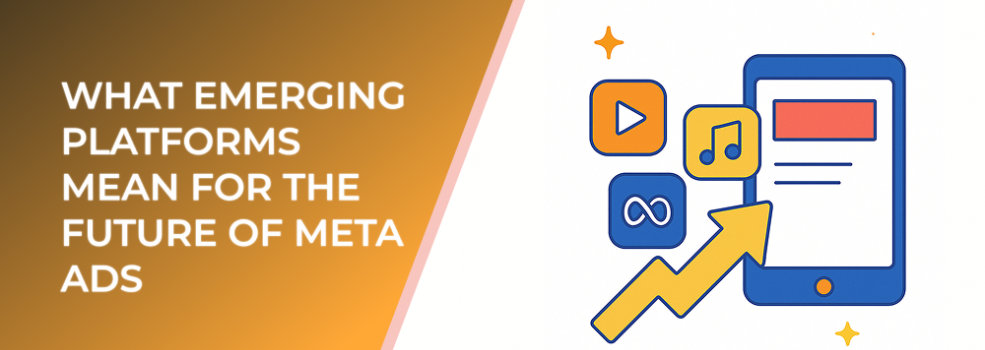What Emerging Platforms Mean for the Future of Meta Ads
Announcement
This article examines how rising digital platforms are reshaping the future of Meta Ads, what challenges and opportunities they introduce, and how advertisers can adapt for long-term success.
What Emerging Platforms Mean for the Future of Meta Ads
The digital advertising ecosystem has expanded rapidly, with new platforms gaining traction every year. From short-form video networks to conversational apps and decentralized communities, these emerging channels are redefining where attention flows—and how Meta Ads must evolve to stay competitive.
Meta remains one of the largest players in the industry, but the rise of alternative platforms is shifting consumer behavior and setting new expectations for engagement, personalization, and creator-led influence.
Fragmentation of User Attention
As user behavior diversifies, attention is no longer concentrated on a handful of platforms. Consumers now split their time across:
-
Video-first platforms
-
Community-driven networks
-
Messaging ecosystems
-
Niche interest hubs
-
Creator-focused apps
Recent usage studies show that over 47% of users now regularly engage on three or more social platforms, compared to just 28% five years ago.
For Meta Ads, this fragmentation means greater competition for impressions and the need for more compelling, platform-native creative.
Influence of Short-Form Video Platforms
Short-form video platforms continue to redefine content discovery. Their rapid scroll mechanics and high engagement rates influence user expectations across all digital environments.
Industry benchmarks reveal that short-form video content generates up to 2.3x higher engagement than static feed posts.
Meta has responded by prioritizing Reels inventory, but advertisers must adapt creative styles to remain competitive.
Creator-Led Ecosystems Are Transforming Ad Delivery
Creators have become central to modern marketing strategies, building trust-driven relationships that outperform traditional ads.
A recent survey found that 61% of users trust creator recommendations more than brand advertisements, shaping how platforms refine their ad delivery and recommendation algorithms.
Meta’s ecosystem increasingly integrates creator tools, branded content signals, and collaborative ad formats to stay aligned with this shift.
Messaging Platforms Are Becoming Primary Engagement Hubs
Messaging apps are growing faster than traditional social feeds. These platforms are becoming central to customer support, product discovery, and automated lead qualification.
Over 3.2 billion people use messaging apps monthly, and usage grows each year.
Meta’s investment in automated chat, conversational ads, and integrated commerce reflects this evolution.
Rise of Decentralized and Community-Centric Spaces
New digital communities built around shared interests, niche topics, or decentralized governance are influencing how users expect to be engaged.
Brands are adapting by using Meta’s advanced audience modeling and lookalike tools to capture intent signals from these external behaviors.
Advertisers leveraging community-based behavior data report 17–22% stronger top-of-funnel performance than those using legacy interest targeting.
Increased Competition for Algorithmic Efficiency
As alternative platforms invest heavily in AI-driven ad systems, Meta must refine its delivery models to remain competitive.
Recent performance data shows that cross-platform advertisers allocate budgets based on:
-
Algorithmic stability
-
Cost efficiency
-
Creative adaptability
-
Predictive optimization accuracy
Meta’s evolving machine-learning infrastructure aims to deliver consistent results even as user behavior shifts.
What This Means for Advertisers
The rise of emerging platforms reshapes expectations across all digital media. For advertisers, the implications include:
-
Higher demand for creative diversification
-
More focus on signal quality and server-side tracking
-
Greater need for cross-platform learning strategies
-
Increased investments in conversational and creator-led formats
Final Thoughts
Emerging platforms aren’t replacing Meta—they are redefining the rules of digital engagement. Meta Ads will continue to evolve as attention shifts, content formats change, and new standards for personalization and privacy emerge. Advertisers who embrace experimentation, creativity, and high-quality signals will thrive in this multi-platform future.

